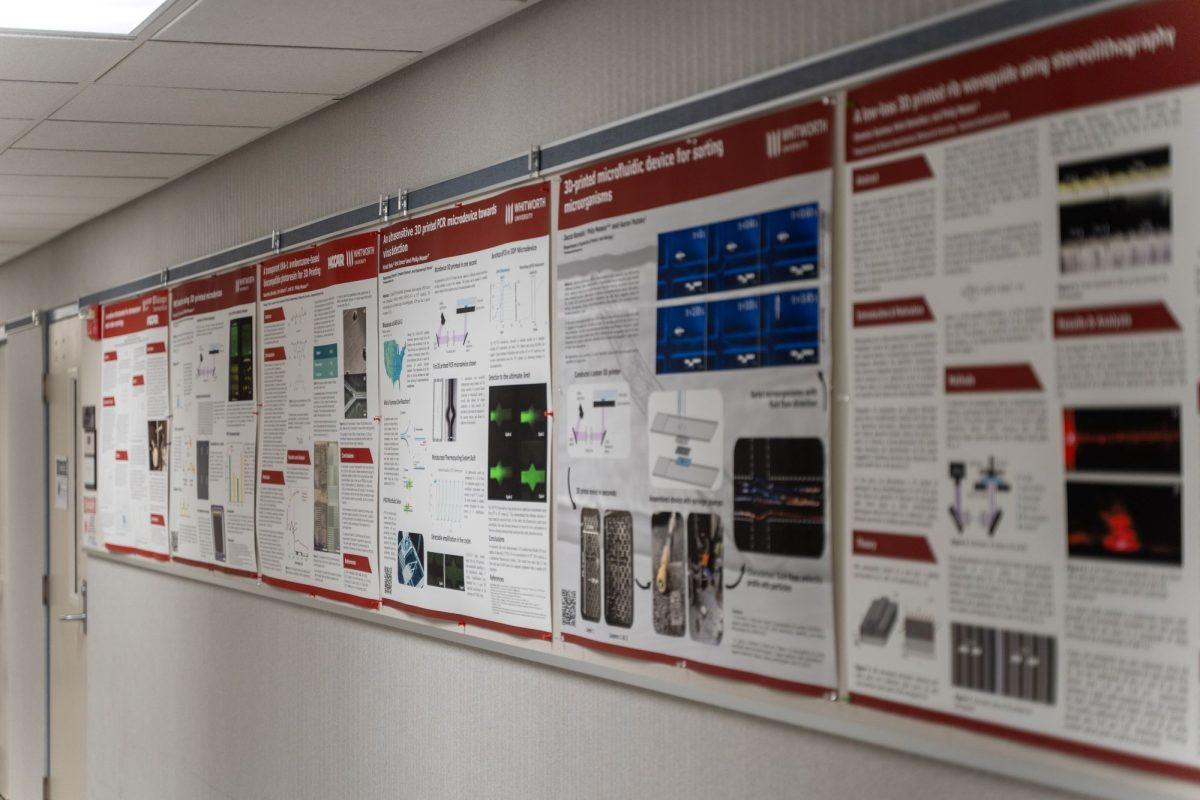
Whitworth University is known for its small class sizes and its intentional student-faculty relationships. However, the university still employs a handful of adjunct professors. These professors often teach either introductory courses when departments are stretched thin or highly specialized courses in departments that do not have an expert in a topic needing to be taught.
Gregor Thuswaldner, provost and executive vice president at Whitworth, explains that adjunct professors are generally contracted one semester at a time. Rather than having a long-term, tenure-track contract, adjunct faculty are “considered to be short-term hire[s],” said professor emeritus of history Dr. Dale Soden.
Soden explained that adjunct professors have long been a part of the university model. They are often employed at large, public research universities in place of a tenured professor to allow professors more time for their own research and teaching of upper-division classes. Soden further explained that adjuncts are far cheaper than tenured professors. They save the university money and create opportunities for funds to be allocated elsewhere. When universities are struggling financially, there is usually a spike in the number of adjuncts they will employ. Whitworth itself “needs […], generally speaking, to use [adjunct] faculty to […] balance the budget,” said Soden.
However, as Whitworth continues to struggle financially, the university has taken a different approach towards adjuncts. Instead of increasing the number of adjunct professors, the university has chosen to decrease that number. While this may seem counterintuitive, Thuswaldner explained that this is a very intentional choice. The university is instead decreasing the number of small specialty classes taught by tenured professors and requiring professors to teach more introductory, first-year classes. Compared to research institutions, Whitworth has “smaller majors [in which] full-time professors teach very small classes,” said Thuswaldner. This means that first-year students rarely interact with full-time professors in introduction-level classes.
Because adjunct professors typically have other jobs outside of the university context, “they’re not often available to go out for coffee” or make time to build intentional relationships with students, said Soden. This often leads to first-year students feeling disconnected from the university.
By increasing the number of intro-level classes taught by full-time faculty, students will have more opportunities to connect with professors at the very beginning of their college careers. When this is the case, it is “much more likely that [students] will stay at Whitworth because they have formed relationships with professors,” said Thuswaldner. As a result, departments are “rethinking majors [and] programs” to be more intentional with the classes that are being taught, said Thuswaldner.
However, this leaves upper-class students without the opportunity to take the specialized classes that are no longer being taught as a result.
It seems that there should be an alternative approach to student retention rather than sacrificing upper-division classes and limiting professors’ ability to share their expertise with driven students. Instead of removing adjuncts, departments may be more intentional with first-year students. This could include hosting department-wide events in which students can meet professors and build relationships with them outside of the classroom. Currently, first-year students are placed in a seminar class with a first-year advisor, generally in their declared major. This opens the door for students to get to know their professors in a class designed to mentor students and help them adjust to the college experience.
It seems that if this were the case, adjunct professors would have a place on campus. They often bring valuable field experience that is difficult to find in academia and give tenured professors the time to share their expertise in specialized classes. Without adjuncts, the university is sacrificing an opportunity that makes Whitworth unique: small class sizes and intentional relationships with professors. By creating alternative ways for first-year students to get connected, the university can get the best of both worlds.









